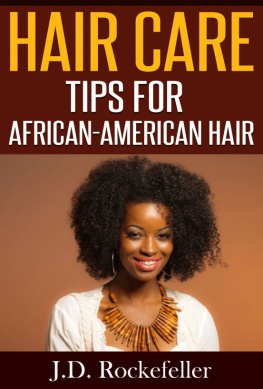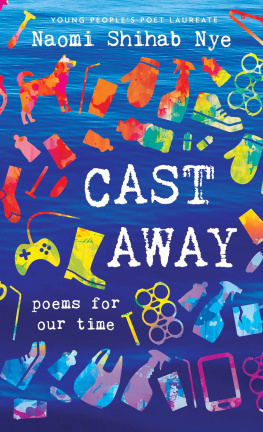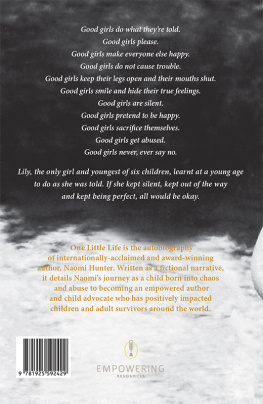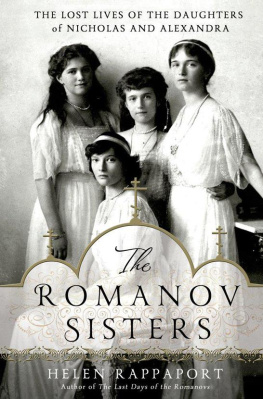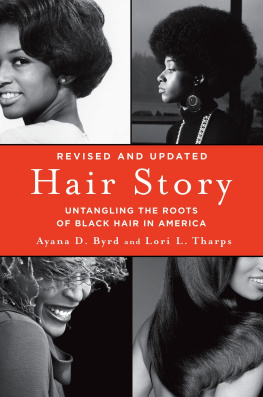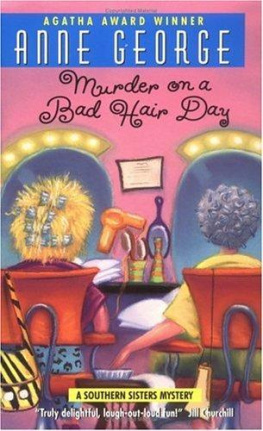
The Girls
by
Helen Yglesias
This book is for my sisters.
IT HAD BEEN THE little kids in the family who heard Miami as Theirami Grandma and Grandpas Ami, Aunt Naomis Ami, Aunt Evas Ami, Uncle Maxs Ami, all the way down the Witkovsky family line. That was fine with Jenny. Their Ami, not hers. Jenny had never wanted any part of Anybodys Ami. She was glad that her own children had never claimed the place.
They had been a large family, seven brothers and sisters plus Mama and Papa: four girls, as they were still called into their nineties, the girls, and three boys, the boys into their eighties. The males died younger, died, in Miami, one after the other, though Mama went first; then Lionel, out of the family order, a middle brother; then Papa; then the eldest brother, Stanley; and recently powerful Max, dead of prostate cancer as if he were any old body and not the head of a huge moneymaking industry clothing factories, retail stores, real estate, investment banking. Philanthropy, of course. Dead anyway, before his two older sisters and his two younger, leaving only Mama and Papas four daughters still to go, with Jenny the last of the last, the youngest, arrived in Miami International Airport, arrived at the doorway of Gods waiting room, as the old joke had it. Not to die herself, but to help her two oldest sisters die, Eva and Naomi, hovering, endlessly horribly hovering on the brink. Eva was ninety-five, Naomi was ninety, Flora eighty-five, and she, Jenny, was eighty. Neat arrangement, the five-year intervals. Every five years makes a generation, Gertrude Stein had written somewhere, and was right, at least about these four sisters.
But the immediate job before Jenny was to get herself transported from the airport to the beach. Not easy. Miami was treating Jenny as heartlessly as Jenny was disowning Miami. Though she had clearly told the porter that she needed the SuperShuttle to the beach, he had dropped her and her heavy luggage at the deserted end of a platform where everything was passing her by. She saw herself as if on film a long shot of a white-haired woman stranded in a chaotic scene of cars, buses, limos, vans, cop cruisers, taxis, motorcycles careening by in a roar of sound, strangely muffled. This old woman who was herself wore a thin black wool suit, a silk knit top visible at the jackets opening, real pearls glowing against the dark fabric, a mink coat slung over one arm, and covering her only slightly rounded shoulders a cashmere shawl (in case the plane became chilly or a sudden cold spell hit Miami). Her swollen feet were crammed into soft black kid shoes, and the off-black hose were badly wrinkled at the ankle. Nevertheless. No little-old-lady-in-tennis-shoes image for this woman. Elegance, if it killed. It would certainly wound. Her feet would ache for a night and a day.
She must not die in Miami. She would die in New England where she lived. Or in New York City, where Mama and Papa and her three brothers were buried. Actually, the family plot was located in Brooklyn among the massed graves of what Jennys daughter called cemetery slums. For herself, Jenny didnt really care where she died as long as she was cremated and the urn buried under the white lilac bush behind her studio in Maine.
Forget Miami, forget the family plot in Brooklyn. Concentrate on here and now.
Arent we supposed to go out in order, oldest first? Naomi on the telephone yesterday morning, begging Jenny to come help her with her dying, though not in plain words naturally, adding an unspoken bargaining plea to Jenny and God that Eva go first. Naomi had cancer. Eva had no diseases but old old age. Jenny herself had no jurisdiction, and it looked as if God was not going to oblige. Naomi was going to die first. Jenny had come, answering her next oldest sister Floras cry for help as well. You have to come down, Jenny, I cant do this alone. The four sisters, together, ninety-five, ninety, eighty-five, and eighty. She laughed, this youngest sister of eighty, though there was nothing to laugh about.
So here she was.
She had flown in from Bangor, Maine, and was stifling in her northern costume. The afternoon air was hot, humid, heavy with exhaust. Exhaust. Miami had already exhausted her and she had hardly arrived. There hadnt been a tourist killing in Miami for several months, but she fit the perfect victim profile and would probably revive the trend. She reminded herself that she was, in fact, a minor actor in the New York intellectual scene, she was Somebody, however ridiculously middle-class pretentious Nobody she seemed at the moment. It had been a mistake to aim for elegance. She should have come as Nobody in worn jeans and her brilliantly colored down jacket, made in China. With the mink over her arm, she was tightly clutching a green cloth carryall imprinted with the Time magazine logo; nothing could have announced more plainly that her valuables were in the cloth bag. She had placed her larger piece of luggage too close to her feet, and she was in danger of stumbling over it without making a move.
She put her hand on her chest to help her breathing; the air was like hot tea. She waited. Someone or something must come along to help. A cop car skidded past, more like a kiddy-car. Resolutely leaving her luggage unattended, she stepped out into the traffic and waved for help with the arm holding the Time carryall. The cop toy went right by, but a second appeared immediately behind it. She waved frantically. The driver was determined to ignore her. She placed herself squarely in his way.
The young cop swung to a stop and inquired in disgust if she was trying to kill herself.
Right in the line of traffic, lady? Not too smart?
Apparently a question, but he didnt wait for an answer.
Whatre you doing back here, anyway? You coming or going? Know where youre headed?
I have a reservation on the SuperShuttle, officer, she said. Shed try good manners, the great placater.
You belong all the way down there, lady.
I told the porter and this is where he dropped me. He said the shuttle would pick me up at this spot, and added, to indicate that she wasnt thoroughly addled, The shuttle to Miami Beach.
She had stepped back onto the platform, close to her luggage. Now the cops disgust was for the porter. Asshole, he muttered under his breath, and took off on foot, leaving his kiddy-car behind. At least she hoped asshole was for the porter, and that the parked car meant he was coming back. Vehicles roared around it and him, respectful enough of his uniform and his raised hand to keep from killing him. She wouldnt have wanted him to die for her unless that was the only way out.
In a moment he commandeered a shuttle bus, empty except for the driver and another fellow busy with a clipboard. Silent and sullen, they obeyed the cops orders. The clipboard guy hopped out, loaded her and her luggage in, asked in English with a strong Spanish accent where she was going and if she had a reservation.
She called up her best manner for the cop first. I cant thank you enough, officer. Thank you so much.
Clipboard mimicked her in Spanish, repeating her words in a faint falsetto. She would pretend she didnt understand Spanish. She gave him the address on Collins Avenue and added, Yes, I do have a reservation.
Miami Beach? You should be down the other end, lady. You cant expect a pickup here. We dont do that.
She hated to be called lady or madam or maam, or by her first name by strangers.
What, then, what in the world would she like to be called?
The cop, back in his kiddy-car, stuck his head out. You get this nice lady where shes going, you get her to her destination. Understand?
Next page



